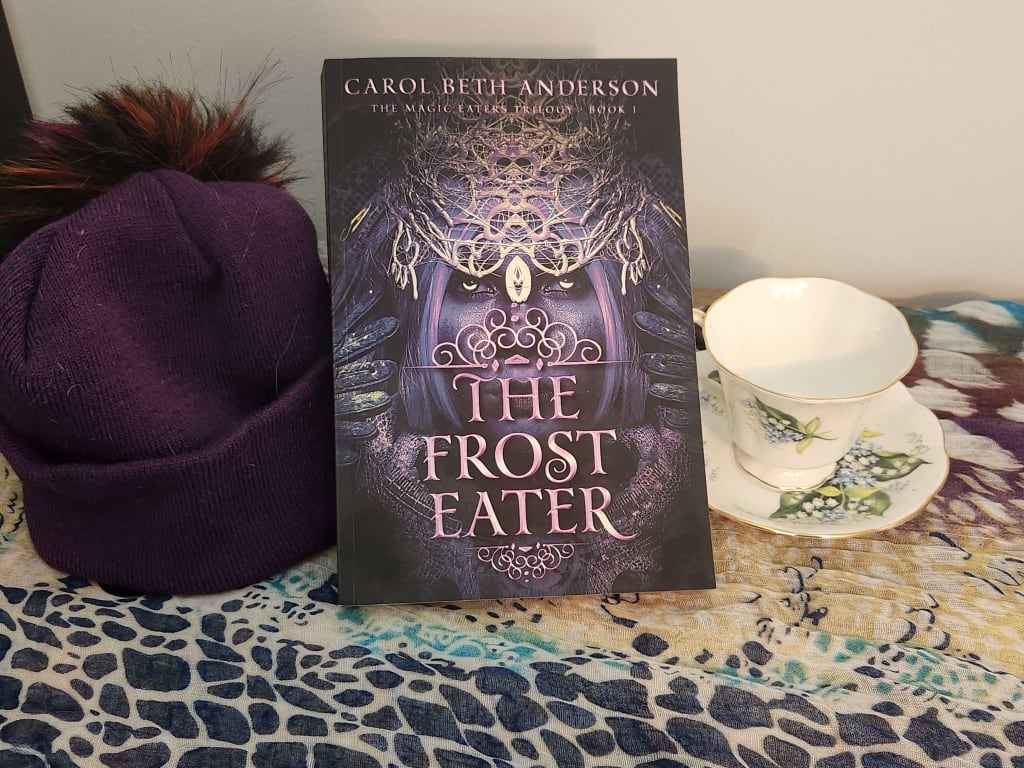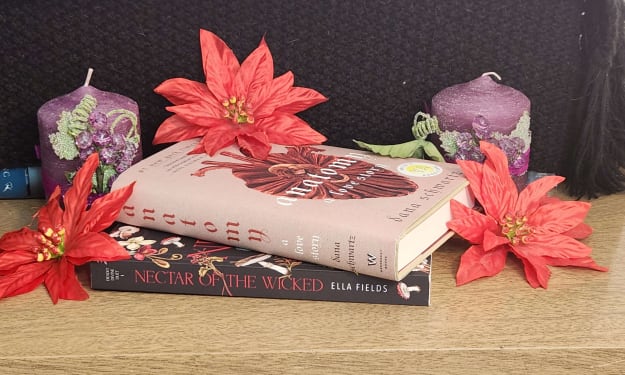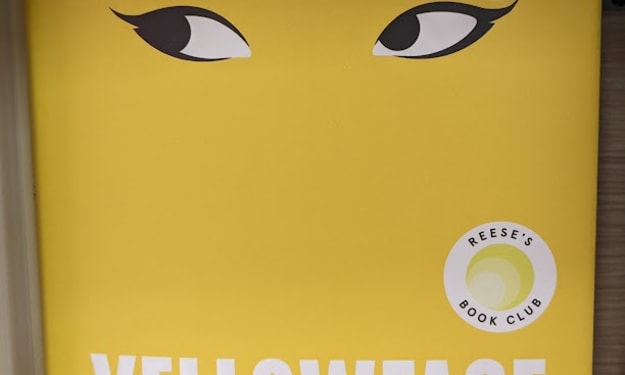[Book Review] The Frost Eater by Carol Beth Anderson
A spoiled royal; a former guard; and a sarcastic commoner join forces to uncover the truth of what is happening to "magic eaters" in their kingdom.

SYNOPSIS:
Seventeen-year-old Princess Nora Abrios is lonely and bored. Though she’s a frost eater who creates magical ice, she’d give anything for a chance to really cut loose. When a commoner’s flying antics capture her attention, she seizes the opportunity to partner up and escape her dreary palace duties.
Krey West’s girlfriend Zeisha disappeared weeks ago. He vowed to discover her fate. So, when his unusual magic catches the eye of the privileged princess, he jumps at the chance to find his love by exploiting the monarchy he hates. But he’s surprised by his feisty new ally’s willingness to defy her family and dig deep into the nation’s darkest secrets…
As new evidence shocks Nora, she makes the fateful choice to flee the capital and join Krey in banishment. And when they uncover a sinister plot which runs darker than the disappearance of one girl, Krey resolves to do whatever it takes…even if he must face down a dragon.
Can Nora and Krey save Zeisha and expose a shadowy enemy, or will their prying spell their doom?
GENRE: Young Adult Fantasy / Magic / Dystopia / Post-Apocalyptic
PUBLISHED: January 28, 2020
RECEPTION: Positive (4.3 on Amazon; 4.14 on Goodreads)
CONTENT WARNINGS: brief, mild profanity
REVIEW:
The Frost Eater is the first book in Carol Beth Anderson’s Magic Eaters trilogy (followed by The Vine Eater and The Stone Eater, with a prequel companion novel The Seer’s Sister also released). The Frost Eater is a post-apocalyptic fantasy story with a unique magic system and a relatable cast of characters, each struggling with their own challenges. While the primary protagonist of the story is Princess Ulminora ‘Nora’, who wholeheartedly believes in the good of the monarchy, the supporting cast – Krey, a brash and sarcastic magic user, Ovrun, a former royal guard, and Zeisha, an imprisoned magic user whose point of view is added in a short chapter every so often to provide insight and urgency to the story – each have stories, motivations, and lessons that are central to the plot and character development.
While The Frost Eater had a slow start, once Nora and Krey meet for the first time, the plot begins to kick off in full force, pulling the audience into a world of magic users (known as lysters or magic eaters depending on who you ask) and pulling other supporting characters – such as Ovrun – into the chaos. As Nora and Krey seek to find the answers of what happened to Krey’s girlfriend, Zeisha, and Nora’s best friend, Faylie, they encounter a number of interesting characters, dark and sinister plots, and they are forced to face the reality that their view of the world is not the only one. Krey, who has a distaste for the monarchy and distrusts them, must learn to trust a princess, and Nora must learn that, to the common people, the monarchy is not as beautiful as it looks on the inside.
The Frost Eater is an excellent introductory book or “first book in the series”; it does well at setting up the characters and their motivations, introducing the villain, and providing information into the history of the world (which appears to have deviated from Earth at some point). The characters are the perfect balance between likable and annoying, and challenging their views serves the story well in that it teaches the audience about how things work in this world. The concept of magic and its inclusion in the story is consistent throughout; Anderson does not fail to stick to the rules she has established, with lysters being unable to use their magic when their fuel is expended (and shows examples of perilous situations in which that is the case), and the brief moments in which Krey teaches Nora about her magic provide the audience with a window into the way magic works.
Where The Frost Eater falls short is in two of its three major twists.
The first twist, regarding Nora, is predictable once the concept is introduced. It is a fine story element, and adds a depth to Nora and her role in the story that was otherwise missing (she is a princess who lived in a gilded cage and did not offer as much to the team as Krey or Ovrun), but it fails to hit its mark in terms of impact because its introduction at such a pivotal moment makes it obvious what is about to happen. The second twist, regarding the villain, faces a similar problem. Prior to Nora, Krey, and Ovrun embarking on their quest to discover the truth, attempts to misdirect the audience with incorrect assumptions have already been quickly resolved, leaving only one possible option, and further attempts to obfuscate the identity of the main villain feel cheap and expected, making the reveal less impactful even if it is exceptionally important to the characters and the story going forward.
The third twist is a little less obvious, and Anderson does a good job at not revealing it too soon, though the amount of attention Anderson pays to the subject does reduce the tension of the reveal.
At times, the inclusion of popular subject matter (lesbian relationships, princesses with ice powers, women in leadership roles, heroes saving the heroine but the heroine saving herself, etc.) makes it feel as if The Frost Eater was written with the intention of it to be marketable. However, this is not necessarily a bad thing. Anderson does an excellent job of making the inclusion of these subjects feel organic, real, commonplace, and not like tropes at all. For example, her inclusion of a lesbian relationship - which is addressed with the same lack of fanfare one would expect from a heterosexual relationship - is expertly done and does not feel as if it is there merely for the sake of diversity. That the characters in question are lesbians is just a part of their characterisation, it is not their whole personality, and the other characters treat it as such. It is this level of inclusion that we strive for in the real world, and this sort of representation only helps.
FINAL RATING: 4 Stars; would recommend
PURCHASE: Available on amazon.ca, amazon.com, and in all major bookstores.
ABOUT THE AUTHOR:
Carol Beth Anderson is an American indie author, audiobook narrator, and book formatter. According to her website, when she is not working on books, she enjoys pursuing other creative hobbies such as baking sourdough bread. You can learn more about Carol Beth Anderson on her website: https://carolbethanderson.com/






Comments (2)
Amazing cover! Might be worth a read. You put a lot of effort into giving an honest review.
This book sound interesting! I’ll read it!